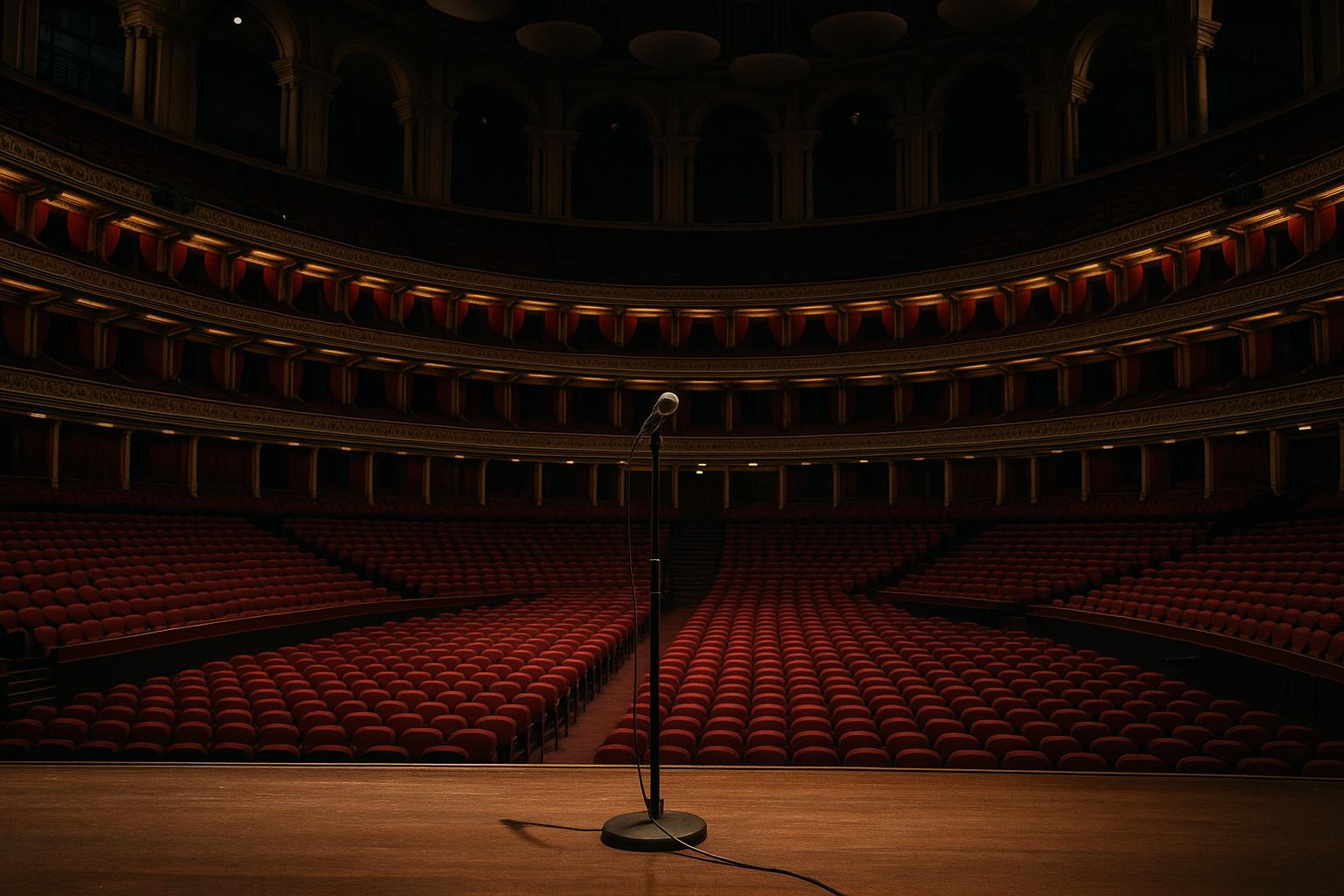For many, the Last Night of the Proms remains a cherished tradition, emblematic of classical music’s annual celebration of shared heritage and community spirit. This year’s event at the Royal Albert Hall, however, unfolded against a background of political tension, as the streets around South Kensington saw passionate demonstrations by supporters of far-right activist Tommy Robinson, draped in flags opposite the usual Promenaders waving their colourful banners. Inside the hall, though, the atmosphere was notably warm and inclusive, with global pennants mingling with banners of the UK and EU, reflecting the diversity that the organisers sought to celebrate through a varied programme of around 20 composers.
One of the notable highlights was the Proms debut of Hong Kong-born conductor Elim Chan, whose energetic presence on the podium brought a compelling edge to the evening. Her direction carried the orchestra and choir with dynamic flair through a mixture of orchestral and vocal pieces. The programme featured an intriguing take on Mussorgsky’s original version of A Night on the Bare Mountain, distinct from the better-known Rimsky-Korsakov arrangement, alongside Dukas’ magical Sorcerer’s Apprentice and a rousing Shostakovich Festive Overture that critics likened to a Soviet-era John Williams score, bursting with vivid orchestral colour.
The vocal performances were equally praised, particularly British soprano Louise Alder, whose performance of the Jewel Aria from Faust was noted for its limber tone and sparkling top notes. She also delivered a heartfelt Vilja from The Merry Widow and conveyed a stylish restraint in the vocal line of Rule, Britannia!—a piece whose historical context and continued popularity often spark debate. Alder rounded off with a charming medley from My Fair Lady, embodying Eliza Doolittle with poise.
A bittersweet moment came with the farewell performance of trumpeter Alison Balsom, who announced her retirement at the age of 46 partly due to the limited trumpet repertoire. Her closing notes on Hummel’s concerto finale were a galloping tour de force. The concert also offered rediscoveries such as Arthur Benjamin’s cantata Storm Clouds, composed for Hitchcock’s The Man Who Knew Too Much, known for its dramatic cymbal crash intended to mask an assassin’s bullet.
However, new compositions struggled to find their footing amidst the classic crowd-pleasers. Camille Pépin’s brief Fireworks lived up to its title but failed to deeply engage, while Rachel Portman’s The Gathering Tree was critiqued for awkward word setting despite its catchy folk-inspired tune. One of the most talked-about moments was the classical arrangement of Queen’s Bohemian Rhapsody, commemorating its 50th anniversary, featuring Queen legends Brian May and Roger Taylor performing alongside the BBC Symphony Orchestra and Chorus. Despite the high-profile collaboration, the rendition was met with more amusement than awe, with some feeling it lacked the emotional resonance of the original.
Notably, comedian and musician Bill Bailey made a memorable Proms debut at age 60, playing a typewriter—yes, an actual one—in Leroy Anderson’s The Typewriter. His humorous interjections and versatile musicianship enlivened the evening, and he later appeared on the Albert Hall organ for Auld Lang Syne. Bailey, who had previously been critical of the Proms, expressed a changed perspective after experiencing the event firsthand, describing it as a uniquely inclusive and celebratory institution. Speaking to several outlets, he conveyed pride in his British heritage and shared heartfelt reflections, including a message from his father who said, “Mum would have been so proud.” The comedian also recognised the power of music to unite, especially during politically charged times, and reflected on the historical significance of songs like Rule, Britannia! and their enduring cultural appeal.
The evening closed with the traditional favourites, including Jerusalem and Land of Hope and Glory, maintaining the Proms’ signature blend of patriotism, musical spectacle, and communal celebration. While the event showcased both the strengths and occasional limitations of a broad-ranging programme, it reaffirmed the Last Night of the Proms as not just a concert but a cultural institution that continues to evolve and provoke thought about British identity and inclusivity.
📌 Reference Map:
- Paragraph 1 – [1], [2], [3]
- Paragraph 2 – [1], [6]
- Paragraph 3 – [1], [6]
- Paragraph 4 – [1], [6]
- Paragraph 5 – [1], [5], [6]
- Paragraph 6 – [1], [2], [3], [4], [7]
- Paragraph 7 – [1], [5], [6]
Source: Noah Wire Services
